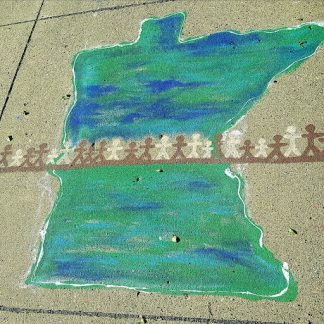By Kat Nelsen
Libraries Civic Engagement Committee
 Welcome back to campus! Whether you are new to Minneapolis and Saint Paul or you have been here for a while, getting involved in your local government is a great way to meet new people, learn how the legislative process works, build up your resume, and make a difference. You can bring your unique perspective to enact change and support initiatives that matter to you. Your voice matters! And it matters even more at the local level than the national stage.
Welcome back to campus! Whether you are new to Minneapolis and Saint Paul or you have been here for a while, getting involved in your local government is a great way to meet new people, learn how the legislative process works, build up your resume, and make a difference. You can bring your unique perspective to enact change and support initiatives that matter to you. Your voice matters! And it matters even more at the local level than the national stage.
How to find the right opportunity for you?
Start by thinking about what kind of time commitment you can realistically make. Do you have the time to attend monthly meetings? Can you commit to volunteering 2-3 hours a week? Is a one time event a more realistic goal?
Next, think about some of the things you really care about where you would like to make an impact. Your local government (city and county) is the primary source of funding and policy-setting for schools, libraries, police departments, parks, transportation, health services, and so much more!
Vote
To make a big impact with the smallest time commitment: Be a voter! Register now and put voting on your calendar for Tuesday, November 2nd or vote early by mail or in-person. Or sign up with TurboVote to register to vote and even get reminders sent to you. Between now and November, find out what will be on your ballot. You can do a little research to learn about the offices, candidates, and ballot initiatives to prepare for election day.
Be a poll worker
If you have a little more time, consider serving as a poll worker for the upcoming election. It is required that your job give you time off to perform this important duty. If you live in Minneapolis you can apply to work on election day and if selected you’ll make $17.25/hour while making sure that everyone who is eligible to vote gets their voice heard. If you live in Saint Paul (which contracts elections through Ramsey County), you can apply and make $16-$18/hour or choose to volunteer your time.
Hold local officials accountable
Write letters, follow government officials and organizations on Twitter, Facebook, or other social media channels. Let them know what you think about their work on the issues important to you. You can find contact information for your local representatives by visiting the government page for your local city and county. Below are the links for city and county government officials associated with U of M Twin Cities campus communities:
- Minneapolis
- Hennepin County
- Saint Paul – leadership information appears under “Government”
- Ramsey County
If you want to go a little bigger, you can use this GIS tool to find the names and contact information for your state representatives in Minnesota. All you need to do is enter your zip code.
Attend meetings
If you have the time for monthly meetings consider joining a local board or commission. Also, you don’t have to be on the City Council or board to attend many of the meetings. Both Minneapolis and Saint Paul publish their meeting calendars online. Meetings at the city and county levels are often open to the public either in-person, or more recently, online. Attending meetings when you can, will give you a better understanding of what is happening in your area and how decisions are being made.
Activism counts

Langston Hughes quote – printed for the Libraries exhibit Protest Publishing and Art, 2017.
And finally, you could find a campaign or issue that matters to you and volunteer some of your time to it. Join a local non-profit organization, or attend a rally or protest.
Use the city and county websites below to find out more about local city and county governments, what they do, and opportunities to get involved:




